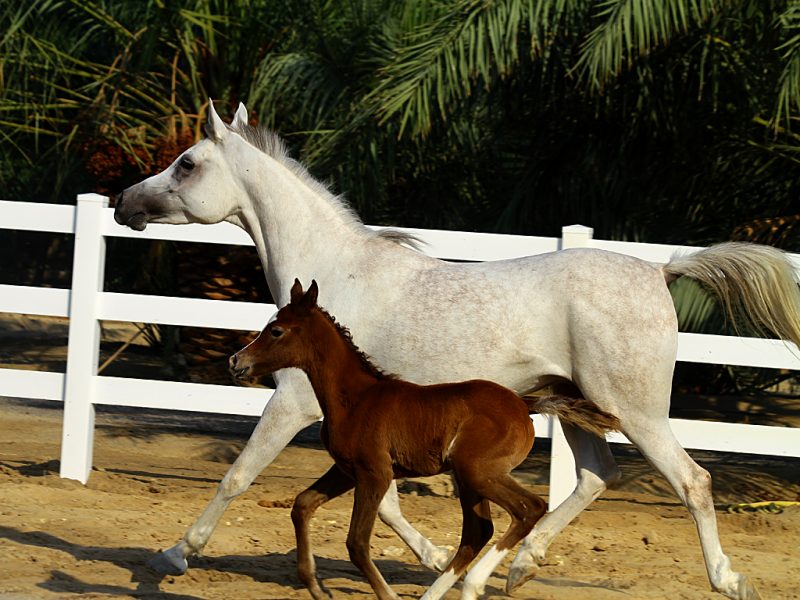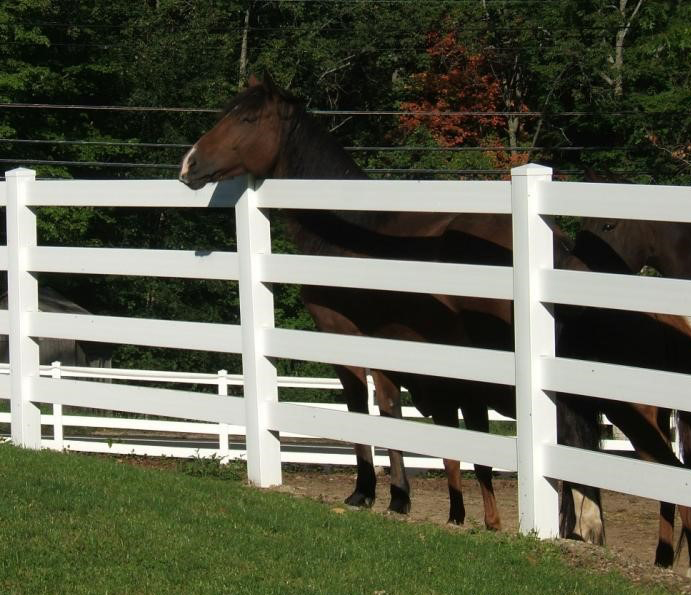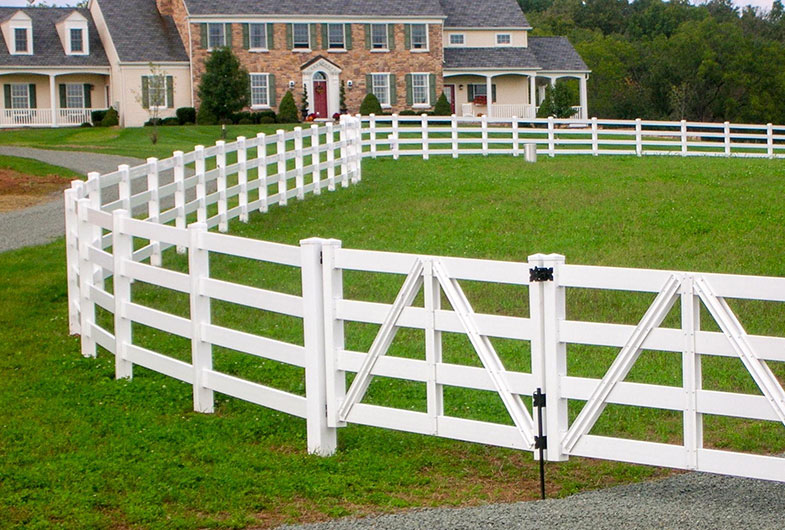5 Reasons Why Vinyl Horse Fencing Is the Safest Type of Fence
Horses are flight animals. This means they can be prone to bolting when startled, paving the way for a potential accident. Your fence should be preventing these accidents, not causing them. That’s why vinyl horse fencing is becoming the standard for equine operations and ranches across the world.
Vinyl is considered one of the best horse fencing materials for a variety of reasons. For now, we’ll focus on the 5 safety motives for why ranchers are choosing to install vinyl horse fencing.
1. Better Flex
Setting a perimeter for your horse is a great way to safeguard them from threats that could wander on to your property. These fences are also meant to keep the horses in a controlled environment where they can’t wander and find danger. However, horses are independent creatures that may want to force their way through a barrier.
Vinyl horse pasture fencing provides a strong, flexible barrier that will keep horses where they should be. Vinyl’s strength is in its flexibility. Vinyl fences are four times more flexible than wood.
Flexibility offers two benefits when it comes to safety. Concrete, or in some cases, wood can be too stiff and sturdy. If a horse attempts to break through a structure built with this material, they could gravely injure themselves. Vinyl fencing softens the blow by providing some give in the structure so the horse doesn’t feel the effects of a straight blow.
Having more flexibility also means it’s less likely to break. Wood gets weaker over time due to corrosion caused by rain, bugs and negligence. Vinyl keeps its strength over time by offering flexibility on a moment’s notice.
2. Breaks Cleanly
No fence is indestructible. Eventually, a vinyl fence will come face-to-face with a fierce kick or collision from a slip or fall. The impact of either force may cause the fence to dislodge or break.
When heavy duty vinyl breaks, it breaks cleanly. This means the vinyl won’t shatter into pieces, protecting your horse from loose fragments. Instead, it will break a one point and breakaway with fewer sharper edges.
Another concern with a broken fence is the presence of concrete. If there’s concrete keeping a post stable, a collision with a horse could be fatal from blunt force alone. Vinyl Fence Wholesaler offers heavy duty vinyl horse fencing without the concrete for heavy duty posts. If a horse falls over a vinyl fence, it won’t hit concrete that could potentially injure it.
3. Cribbing Resistant
Cribbing is when a horse grabs a solid object with its teeth and pulls against the object while arching its neck and gulping in air. It’s considered a behavioral disorder that is likely caused by boredom or stress.
Cribbing can be harmful for horses. It’s believed to increase a horse’s risk for stomach ulcers and can wear its teeth down, affecting their ability to eat properly later in life. Cribbing is most commonly seen on stall doors and horse pasture fencing where the horse is kept for long periods of time.
Vinyl horse fencing can prove to be a sturdy cribbing-resistant solution, as the material won’t wear away quickly like wood will.
Cribbing can be destructive to both your horse and fence. Long-term cribbing can make your wood fence brittle and weak, resulting in extra repair or replacement costs.
Vinyl isn’t the only horse cribbing solution on the market, but it can help deter younger horses from beginning this habit.
4. Fire Resistant
Most plastic materials readily burn once they are exposed to heat. Wood materials feed a growing blaze, making a fire more uncontrollable. Vinyl fencing is fire resistant.
The substances that make up plastic vinyl emit gas when they are burned. The chemicals that are released when vinyl burns actually extinguishes flames, which limits the potential damage if a fire were to occur.
Fence electrification is also necessary in some cases for equine fences. Vinyl is the preferred option because it doesn’t need special insulators like metal or wood fences do. Without an insulator on a wood fence, an electrical wire can become “hot” and potentially spark on the wood, causing a fire. With vinyl, horse owners can actually attach their electrified wire directly to the fence because of vinyl’s insulator qualities.
5. Longevity
Vinyl fencing is made with longevity in mind. The material is produced to last nearly a lifetime and is resistant to corrosion causing agents such as moisture and bugs.
If you’re lucky, a wood fence will last 10 years if you treat it every year. Vinyl requires no painting or finishing for added protection. The heavy duty vinyl won’t lose its color or become brittle. The maintenance-free nature of vinyl makes it the safest and most cost-effective horse fence solution on the market.
Vinyl Fence Wholesaler is so confident in the durability of our vinyl horse fences, we offer a transferable lifetime warranty.
If you’re in the market for a new fence, reach out for a quote today and choose from our 5 different styles of horse fences to keep your horses safe.





